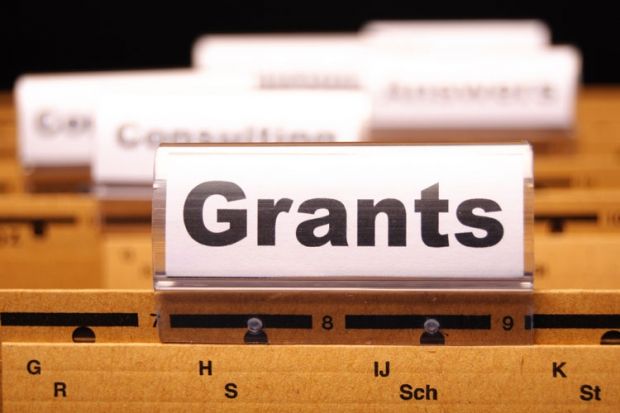Royal Society
University Research Fellowships
- Award winner: Daniel Credgington
- Institution: University of Cambridge
- Value: £453,007
Spin-control and spin-dependent recombination in organic electronics
- Award winner: Alberto Sesana
- Institution: University of Birmingham
- Value: £458,331
Gravitational wave detection with pulsar timing arrays
- Award winner: Sam Vinko
- Institution: University of Oxford
- Value: £479,642
From stars to proteins: unveiling material response in intense X-ray fields
Arts and Humanities Research Council
Amplification Awards
- Award winner: Elton Barker
- Institution: The Open University
- Value: £63,851
Pelagios 4: studying the places of our past through early geospatial documents that refer to them
- Award winner: Tillman Weyde
- Institution: City University London
- Value: £61,423
An integrated audio-symbolic model of music similarity
National Institute for Health Research
Efficacy and Mechanism Evaluation programme
- Award winner: Karl Herholz
- Institution: University of Manchester
- Value: £725,908
Imaging cerebral neuroinflammation in acute and chronic cerebrovascular disease: a predictor of outcome and biomarker for guiding treatment
Biotechnology and Biological Sciences Research Council
Research Grants
- Award winner: Sarah De Val
- Institution: University of Oxford
- Value: £518,153
Regulatory pathways controlling venous identity
- Award winner: Vardis Ntoukakis
- Institution: University of Warwick
- Value: £366,5
Molecular mechanism regulating MAPKs activation within resistance complexes
- Award winner: Corinne Houart
- Institution: King’s College London
- Value: £490,598
Control of cell-cell interactions in forebrain morphogenesis
- Award winner: Lonneke Vervelde
- Institution: University of Edinburgh
- Value: £393,498
Elucidating local site and cell types involved in antigen uptake, processing and presentation in the chicken
In detail

Award winner: Jose Jiménez
Institution: University of Surrey
Value: £376,000
The role of the cellular economics in the expression of exogenous genes: towards modularity in synthetic circuit design
This project will explore how cells distribute resources needed for gene expression and how this process could be modified for practical use. Using E. coli, Jose Jiménez, lecturer in synthetic biology, aims to unravel the characteristics of the cell economy – where all genes compete for the same transcriptional and translational machinery – and to explore the hypothesis that distribution of resources in the cell can be optimised. “By understanding how different genes compete for the same cell machinery, we hope to produce cells with an improved distribution, and design genetic circuits that take advantage of that and use resources more efficiently,” he said. “This is important for biotechnology, especially when genes from other organisms are inserted into a host for a particular function.”

